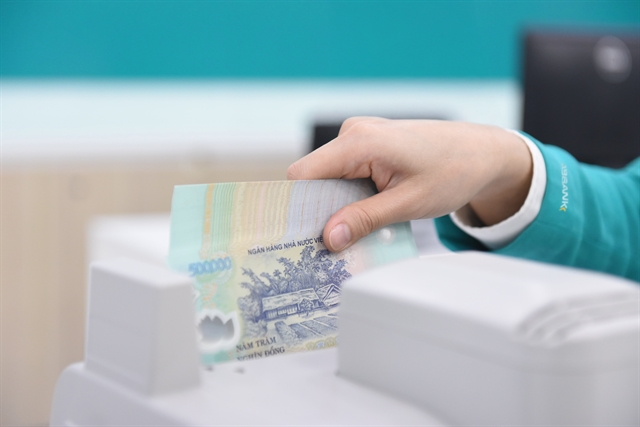HCM City banking sector to bolster enterprise support to offset US tariff impacts: central bank
The HCM City banking sector will help businesses overcome the impacts of the new US tariffs on their exports as part of broader macroeconomic measures initiated by the Government and the city, according to the State Bank of Vietnam.
- AmCham proposes US postpone reciprocal tariffs on Việt Nam's goods
- Việt Nam eyes backup plans as US tariff threat looms
- Việt Nam takes swift, proactive actions in response to new US tariff policy
- Deputy PM chairs task force meeting on economic and trade cooperation with US
- Việt Nam Trade Office warns of trade diversion, affecting Vietnamese exports to EU
- No significant impact for domestic banks over loans to export and FDI enterprises

HCM CITY — The HCM City banking sector will help businesses overcome the impacts of the new US tariffs on their exports as part of broader macroeconomic measures initiated by the Government and the city, according to the State Bank of Vietnam.
The US announced on April 2, effective April 9, a 46 per cent reciprocal tariff on Vietnamese goods, which came as a big shock to exporters.
Nguyễn Đức Lệnh, deputy director of the State Bank of Vietnam’s Region 2 branch in HCM City, emphasised the urgent need for practical support for businesses, particularly exporters, who are most affected by the new tariffs, with a focus on reducing operational costs, improving the business environment, and enhancing access to capital and banking services.
He said the banking sector would implement the central bank’s policies related to monetary management, credit and interest rates, ensuring stable and low-cost financing for businesses.
Exporters will continue to get short-term loans in the đồng at below 4 per cent interest as part of the central bank’s five priority sectors, the others being small and medium-sized enterprises, agriculture and rural development, high-tech industries, and supporting industries.
Lệnh said banks would also expand preferential loan packages.
A dedicated credit package for the forestry and seafood sectors, with interest at 1–2 per cent lower than regular rates, will help enterprises navigate external shocks and maintain operations.
The city would strengthen the bank-business connection programme to enable the latter to access capital and other banking services, Lệnh said.
The disbursement of preferential credit would be accelerated and target the right beneficiaries, he added.
Export-import companies will also receive advisory support on hedging and using foreign exchange derivatives to meet legitimate currency needs and reduce risks from market volatility.
A Q1 survey by the HCM City Union of Business Associations (HUBA) highlighted the challenges businesses are facing.
Some 50 per cent reported being negatively affected by declining consumer demand, 39 per cent lacked working capital, 38 per cent struggled with rising input costs, and 37 per cent did not have new orders.
They also cited recruitment difficulties, increasing land rentals and high taxes and fees.
While 69.5 per cent of companies saw higher revenues in Q1, 39 per cent reported lower profits due to rising production costs.
To address these issues, HUBA has proposed several solutions, including improving access to capital as nearly 60 per cent of surveyed businesses seek credit support and reduced interest rates.
The businesses also called for administrative reform, wanting authorities to do away with at least 30 per cent of procedures, streamline investment licensing, speed up processing times, and accelerate digital transformation to reduce time and costs.
HUBA called for measures to stimulate domestic consumption and boost public spending. — VNS
- Tags
- US tariffs











